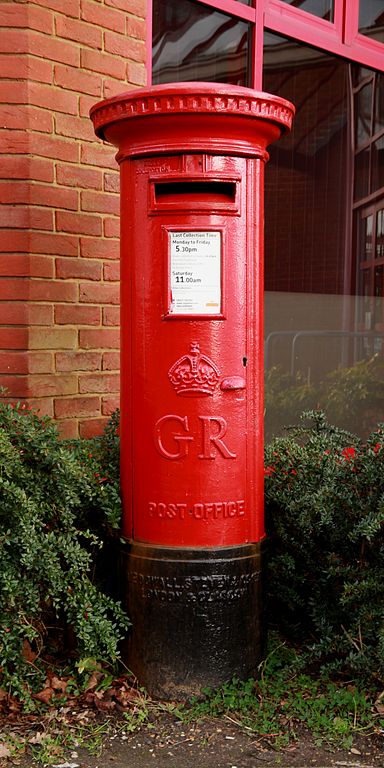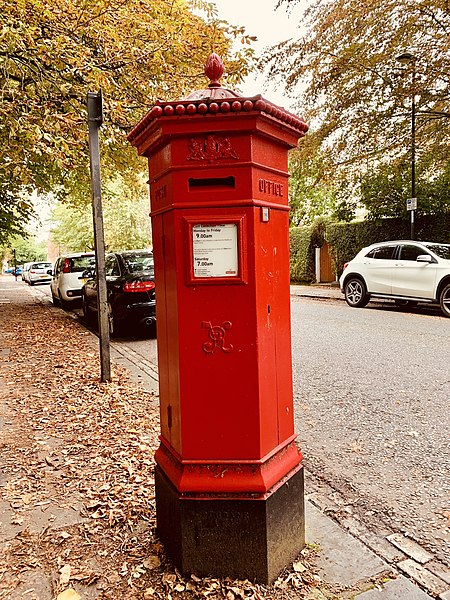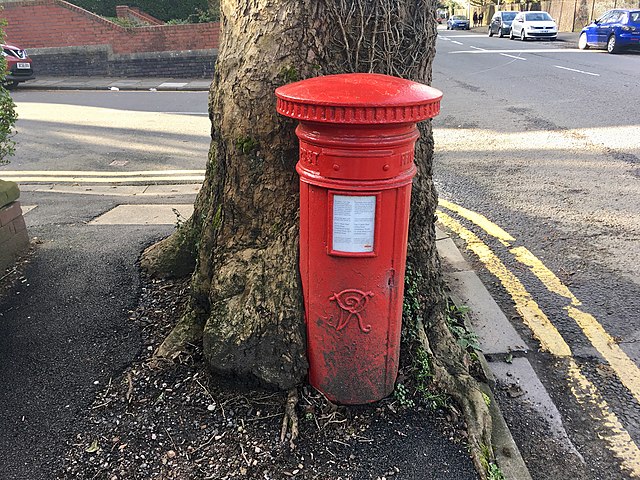
A new book recently acquired by the Thammasat University Library should be useful for students interested in European literature, English history, sociology, and related subjects.
Anthony Trollope: A Companion discusses a novelist celebrated in the 1800s, who still has devoted readers today.
The TU Library collection includes many books by and about Trollope.
Anthony Trollope worked for many years as an official in the post office, and is credited with having introduced post boxes, called pillar boxes, to the United Kingdom.
His sense of practical detail made his descriptions of life of his time helpful for historians.
His novel He Knew He Was Right (1869) is about an unhappy marriage. But there are also many intriguing observations about facts like the poor food that was available on British Rail trains in Trollope’s era. He wrote:
We are often told in our newspapers that England is disgraced by this and that; by the unreadiness of our army, by the unfitness of our navy, by the irrationality of our laws, by the immobility of our prejudices, and what not; but the real disgrace of England is the railway sandwich,–that whited sepulchre, fair enough outside, but so meagre, poor, and spiritless within, such a thing of shreds and parings, such a dab of food, telling us that the poor bone whence it was scraped had been made utterly bare before it was sent into the kitchen for the soup pot.
The books of Anthony Trollope have lots of insights about people who live only to earn money, and how they think about their income all the time. So The Way We Live Now (1875) features Augustus Melmotte, a dishonest financier who destroys the lives of people who some into contact with him. Here is a brief description of Melmotte’s activities:
Chapter 4 ~ Madame Melmotte’s Ball
It was at any rate an established fact that Mr Melmotte had made his wealth in France. He no doubt had had enormous dealings in other countries, as to which stories were told which must surely have been exaggerated. It was said that he had made a railway across Russia, that he provisioned the Southern army in the American civil war, that he had supplied Austria with arms, and had at one time bought up all the iron in England. He could make or mar any company by buying or selling stock, and could make money dear or cheap as he pleased. All this was said of him in his praise,–but it was also said that he was regarded in Paris as the most gigantic swindler that had ever lived; that he had made that City too hot to hold him; that he had endeavoured to establish himself in Vienna, but had been warned away by the police; and that he had at length found that British freedom would alone allow him to enjoy, without persecution, the fruits of his industry. He was now established privately in Grosvenor Square and officially in Abchurch Lane; and it was known to all the world that a Royal Prince, a Cabinet Minister, and the very cream of duchesses were going to his wife’s ball. All this had been done within twelve months. There was but one child in the family, one heiress for all this wealth. Melmotte himself was a large man, with bushy whiskers and rough thick hair, with heavy eyebrows, and a wonderful look of power about his mouth and chin. This was so strong as to redeem his face from vulgarity; but the countenance and appearance of the man were on the whole unpleasant, and, I may say, untrustworthy. He looked as though he were purse-proud and a bully.
Although Trollope’s stories are fictional, he considered them realistic, to the point where he felt his characters existed. So in The Last Chronicle of Barset (1867) he concludes:
And now, if the reader will allow me to seize him affectionately by the arm, we will together take our last farewell of Barset and of the towers of Barchester… But to me Barset has been a real county, and its city a real city, and the spires and towers have been before my eyes, and the voices of the people are known to my ears, and the pavement of the city ways are familiar to my footsteps. To them all I now say farewell. That I have been induced to wander among them too long by my love for old friendships, and by the sweetness of old faces, is a fault for which I may perhaps be more readily forgiven, when I repeat, with some solemnity of assurance, the promise made in my title, that this shall be the last chronicle of Barset.

Here are some other observations from novels by Trollope, some of which are in the TU Library collection:
An attorney can find it consistent with his dignity to turn wrong into right, and right into wrong, to abet a lie, nay to create, disseminate, and with all the play of his wit, give strength to the basest of lies, on behalf of the basest of scoundrels.
- The New Zealander (1855-6)
Those who have courage to love should have courage to suffer.
- The Bertrams (1859)
It would seem that the full meaning of the word marriage can never be known by those who, at their first outspring into life, are surrounded by all that money can give. It requires the single sitting-room, the single fire, the necessary little efforts of self-devotion, the inward declaration that some struggle shall be made for that other one.
- The Bertrams (1859)
Men who can succeed in deceiving no one else will succeed at last in deceiving themselves.
- Miss Mackenzie (1865)
Is it not remarkable that the common repute which we all give to attorneys in the general is exactly opposite to that which every man gives to his own attorney in particular? Whom does anybody trust so implicitly as he trusts his own attorney? And yet is it not the case that the body of attorneys is supposed to be the most roguish body in existence?
- Miss Mackenzie (1865)
Book love, my friends, is your pass to the greatest, the purest, and the most perfect pleasure that God has prepared for His creatures.
- Speech at the opening of an art exhibition at Bolton Mechanics’ Institution (1868)
Love is like any other luxury. You have no right to it unless you can afford it.
- The Way We Live Now (1875)
Next to a sum of money down, a grievance is the best thing you can have. A man who can stick to a grievance year after year will always make money out of it at last.
- John Caldigate (1879)
The man who worships mere wealth is a snob.
- Thackeray (1879)
Needless to deny that the normal London plumber is a dishonest man. We do not even allow ourselves to think so. That question, as to the dishonesty of mankind generally, is one that disturbs us greatly.
- The Plumber (1880)
A man’s mind will very generally refuse to make itself up until it be driven and compelled by emergency.
- Ayala’s Angel (1881)
The habit of reading is the only one I know in which there is no alloy. It lasts when all other pleasures fade. It will be there to support you when all other resources are gone. It will be present to you when the energies of your body have fallen away from you. It will make your hours pleasant to you as long as you live.
- The Warden (1855)

(All images courtesy of Wikimedia Commons)
